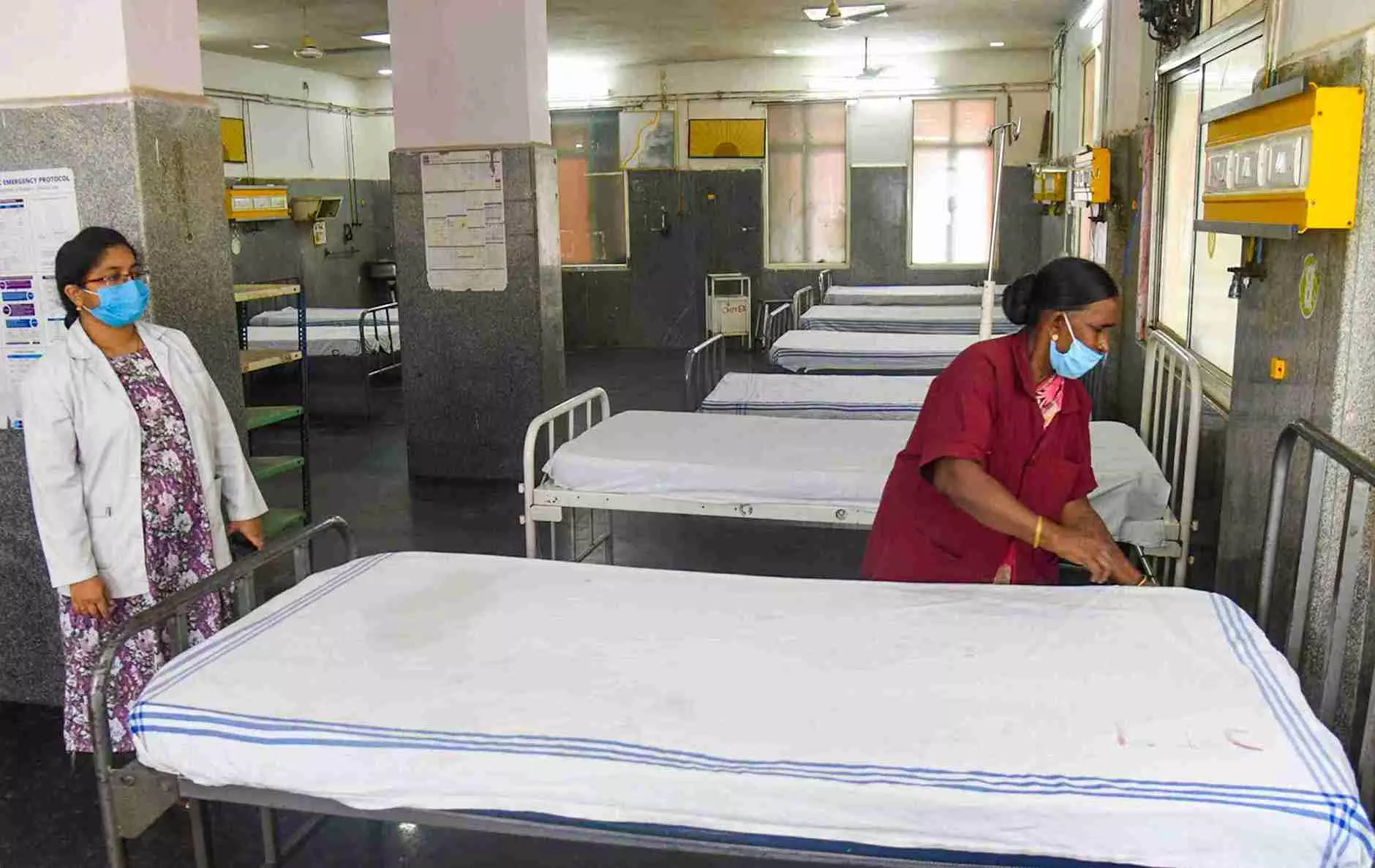
As COVID cases rise sharply in a week, will a booster dose of vaccine help?
Experts say vulnerable populations such as those with comorbidities need to be given a booster dose while certain categories need extra care if infected

Active COVID-19 cases in India have recorded a sudden surge in a week — from 257 on May 19 to 1,009 on May 26. Even though public health experts and officials insist that there is no cause for panic, they also admit that those who are have comorbidities such as diabetes, hypertension, and cancer, among others, need to be monitored.
That gives rise to the question: is it time to give a booster dose of the COVID vaccine to the population? Experts say such doses should be given to vulnerable populations such as those with comorbidities and those on immunosuppressants.
Those above 70 or those with severe comorbidities, such as uncontrolled diabetes, hypertension, or chronic renal failure, those under cancer treatment, and those on immunosuppressants and suffering from extreme obesity should be monitored closely — Dr K Kolandaisamy, former Director of Public Health and Preventive Medicine in Tamil Nadu
Booster dose for the vulnerable
Senior virologist Jacob John advocated for an additional dose of vaccine as a booster to ensure that those vulnerable stay protected against any resurgence.
“The mRNA vaccine GEMCOVAC-19 by Gennova is made for against the JN.1 variant of Omicron that last affected the public on a large scale. Omicron affects the upper respiratory tract and its sub-variants are being reported currently,” he pointed out.
“However, we need to check whether the vaccines need modification with time. The issues of availability and cost effectiveness also need to be kept in mind,” he added.
Also read: No cause for worry, but precautions must: Karnataka minister on Covid spike
No evidence of additional public health risks
Currently, the NB.1.8.1 and LF.7 variants are the cause of the surge in China, Singapore, Hong Kong and Thailand. So far, none of these variants have been declared as those of concern. However, the cases are being minutely monitored.
In Tamil Nadu, while one case of NB.1.8.1 was reported in April, four cases of LF.7 were reported in May, and the affected individuals have recovered since.
COVID analyst Vijayanand stated that the available evidence on NB.1.8.1 does not suggest additional public health risks; this variant does not lead to more severe illness compared to the other Omicron descendants currently circulating, according to the World Health Organization.
Also read: COVID active cases surge to 1,000-plus in a week; 100 new cases in Delhi
Who needs extra care?
Former Director of Public Health and Preventive Medicine in Tamil Nadu, Dr K Kolandaisamy, however, said that since COVID is yet to become a seasonal virus, there is a need for caution. Those above 70 or those with severe comorbidities, such as uncontrolled diabetes, hypertension, or chronic renal failure, those under cancer treatment, and those on immunosuppressants and suffering from extreme obesity should be monitored closely.
He added that as a preventive measure, people with influenza-like symptoms, those with a family history of oxygen requirement during earlier COVID waves, should be given hospital care irrespective of their CRP levels and/or SpO2 levels.
He also felt that the COVID resurgence is expected to be limited since herd immunity in the community remains significant. Yet, high-risk populations need to be vaccinated with a booster dose.
Also read: COVID-19 resurgence in India: 4 die in Maharashtra; what experts say
Surge in Kerala, Maharashtra, Delhi
The increase in the number of COVID cases has sparked concerns among people about the potential for further escalation in the coming days. The Union Health Ministry COVID dashboard shows that the country has reported seven COVID-related deaths in the past week, with Maharashtra accounting for four, Kerala for two, and Karnataka for one death.
Kerala has so far recorded the highest number of active cases in the country. The state had 95 cases recorded on May 19, which has surged to 430 now. Maharashtra, which had recorded 56 active cases last week has seen the number spike to 209. Delhi had reported five active cases last week, but with an additional 99 cases, the figure now stands at 104.
Officials of the Union Health Ministry have reassured the public that the COVID situation in the country is being watched closely and there is no need to panic. Officials insist that the majority of the cases are mild in nature and not all cases have required hospitalisation.

